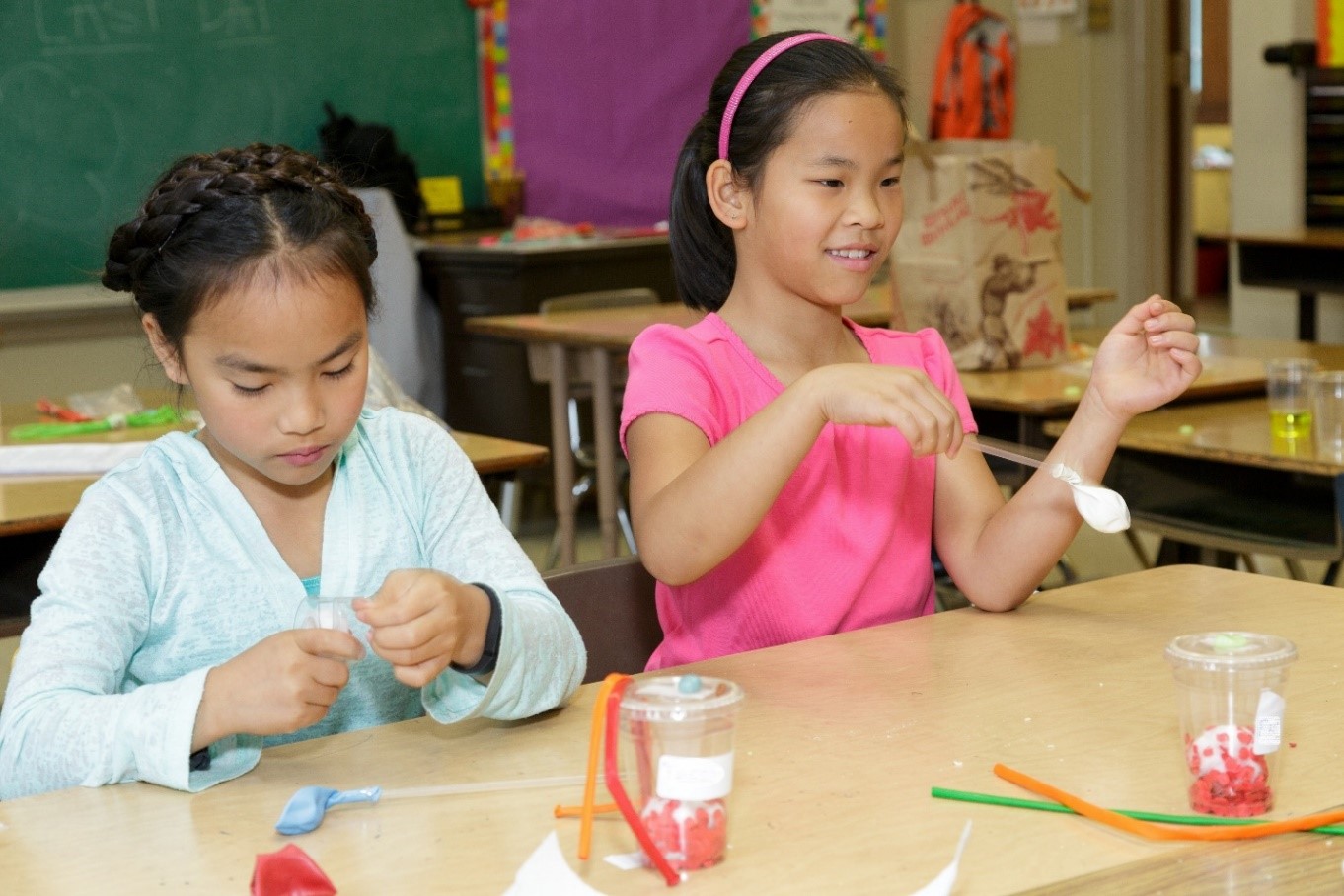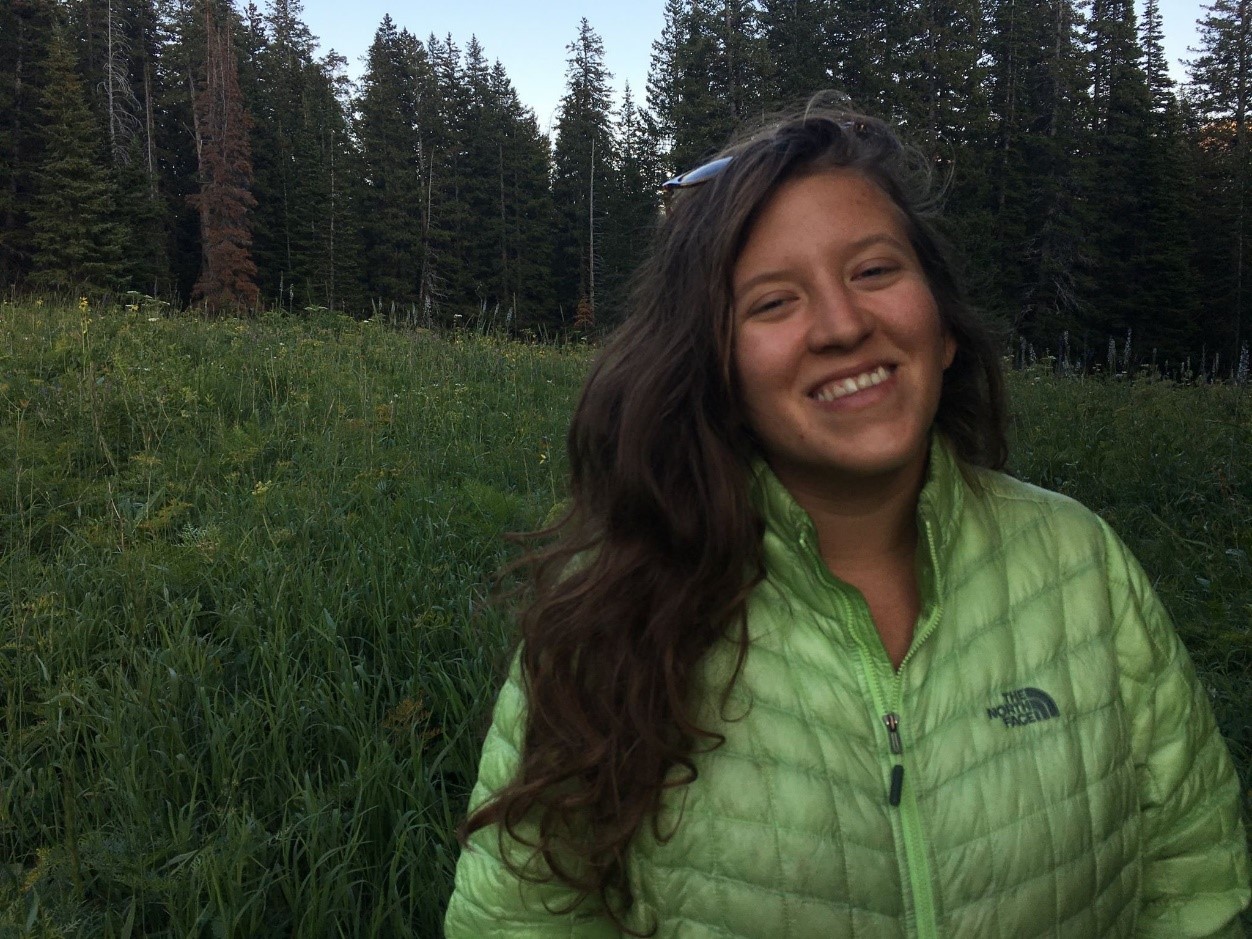Program Profiles
How do successful afterschool STEM programs do it?
These innovative afterschool programs offer impactful STEM programming to diverse populations. Read on to hear their advice for success and to learn about their program structure, evaluation results and partnership models.
All Kids Are Scientists

All Kids Are Scientists (AKA Science) is a hands-on, inquiry-based afterschool program for students k-6. AKA Science was started in 1996 by the Oregon Health Careers Center with the goal of increasing students’ interest in science careers. In 2011 the program was absorbed by Impact NW, a local nonprofit with the mission of providing social services and reducing poverty in Oregon. As part of Impact NW, AKA Science supports the organization’s efforts to “level the playing field” by making high-quality enrichment opportunities accessible to all students.
AKA Science has served over 12,000 students since 2004, with approximately 200 programs led per year.
AKA Science addresses key equity issues targeting students at a critical age for engaging STEM interest with inquiry based activities to get students excited about learning. The AKA Science package includes field-tested curriculum, interactive instructor training, and a kit full of supplies to bring the curriculum to life. The program is grounded in state and national science standards and best practices for afterschool science programs. This model has made the program successful in a wide variety of school and community settings.
AKA Science is structured to maximize the agency of each individual school site and programming is led as part of a larger system of the Schools Uniting Neighborhoods (SUN) Community School program model. SUN Community Schools offer opportunities that support healthy child and youth development and family stability. At SUN Community Schools, the collective efforts of youth, parents, businesses, faith communities, libraries, and community organizations create a network of supports that ensure youth academic success and that communities thrive. SUN Schools are open longer during the school year and in the summer and offer programs open to all ages, with a focus on students in the immediate school community.
AKA Science currently offers 7 different topic modules, each aligned with NGSS curriculum standards.
AKA Science provides kits that include all of the curriculum, supplies and class leader training. Schools, in turn, shape the program to fit their own classroom needs. AKA Science’s current 7 topics are Biology, Earth Science, Forensics, Chemistry, Forces + Motion, Color + Light, and Sound + Flight. Activities are designed to be hands-on, inquiry-based and focused on observable results to boost students’ confidence and engagement. Every topic module is made up of 8 classes worth of curriculum plus additional supplementary activities and extension lessons. Classes typically meet for a minimum of 50 minutes once a week for 8 consecutive weeks throughout a school term, however program structure is ultimately up to each school to decide. From the provided materials and curriculum class leaders can pick and choose which activities to focus on, as they grow to understand their students’ interests.
All AKA Science instructors are trained by AKA Science program staff. Selection and hiring of program instructors is done by each school site, which ensures that schools are free to select instructors who are culturally competent and prepared to address their site’s needs. For instance, if a school’s students are 70% Spanish-speaking at home, that site would be able to specifically seek out a bilingual instructor. Further, AKA Science instructors are often members of the communities they end up teaching in. Many of them have personal connections to their school sites and are familiar to their students. For some of our instructors AKA Science provides a first time teaching opportunity, while for others who return year after year it is an opportunity to work with new classes and topics.
All of the 4th-6th grade classes that are funded by Portland Children’s Levy (PCL) receive their kits for free in exchange for providing enrollment data, demographics, class leader feedback, and student pre- and post-surveys. The pre- and post-surveys are simple, 3-5 question assessments meant to establish a baseline of students’ attitudes towards science as well as their understanding of concepts related to the curriculum module they were enrolled in, and then measure any changes attributable to their participation in AKA Science.
Impact NW’s Quality Assurance team then compiles and analyzes all of that data to provide a summary of our outcomes for each calendar year. 75% of AKA Science students demonstrate a positive or improved attitude towards science, and 87% demonstrate a high or increased knowledge of science concepts.
AKA Science’s partners include SUN Community Schools, Portland Public Schools (PPS), Portland Children’s Levy (PCL), Immigrant & Refugee Community Organization (IRCO), Self Enhancement Inc. (SEI), Native American Youth and Family Center (NAYA), Metropolitan Family Service (MFS), Latino Network, El Programa Hispano Catolico (EPHC), and Portland Metro STEM.
AKA Science’s primary funding source is the Portland Children’s Levy. Each year, a variety of additional funding comes from generous donors such as AWS Elemental, Genetech, Trust Management Services, and more. SUN community school sites are funded through Multomah County (Department of County Human Services).

What feature of your program do you think has been most crucial for success?
AKA Science has been running continuously since 1996. The longevity and success of AKA Science is largely attributable to our focus on making science fun, engaging, and accessible. We aim to nurture curiosity through hands-on activities, encourage questions, and promote student-led learning. The students love the program, and that positive response has allowed us to develop long-standing relationships with many of our school sites, class leaders, and volunteers.
That is not to say that AKA Science has been the same over its entire run. Our flexibility and willingness to evolve has been vital to our continuance and relevance. Curriculum is re-visited and updated prior to each term. The breadth of the program mission expanded by joining with Impact NW, bolstering our community role. We routinely add in or shift our school sites as needed, and are always recruiting new partners. Our understanding of what makes a STEM program engaging and effective has grown from year to year, and these changes are reflected in the classroom. Further, our definition of accessibility has expanded from just our ability to offer no cost curriculum, training, and supplies to mean trauma-informed and culturally-responsive curriculum and instruction.
How does your program support students traditionally underrepresented in STEM?
Working as part of the larger SUN community school network, at school sites with large percentages of higher need students, and offering no cost curriculum and materials to our schools has made AKA Science accessible to students who are traditionally underrepresented in STEM fields. Additionally, allowing school sites the agency to select their own class leaders and for class leaders to customize their curriculum means that students are getting a program more specifically tailored to their needs and interests. Further, by promoting inquiry-based teaching, students learn to see themselves as scientists as well as “learning the science”. Students are encouraged to explore, investigate, and ask questions and classrooms become collaborative and supportive environments for growth. Lastly, our curriculum and class leader training is trauma-informed and culturally-responsive, in an effort to ensure that AKA Science classes are safe and enriching places for all students.
For afterschool programs new to offering STEM, what is your advice?
Consider your audience, resources, and instructors. It is important to understand who you are serving with your program. What age group? What are the locally spoken languages? What is the starting point of STEM familiarity? Effective science curriculum building requires a lot of community context.
Further, it is necessary to know your realistic reach starting out. Go one step at a time, and don’t overstretch the resources available to you. It is better to start success in one classroom than misstep in 50.
Lastly, know the background, interests, and skills of your instructors. Having a science, teaching, language, or even theater background can be helpful in engaging students in STEM. Be aware of what your instructors need to thrive, and what they can specifically offer your program and their students.
What has your program done to make itself scalable?
AKA Science is scalable because the materials and curriculums can be compiled and applied anywhere! We’ve purposely structured a program that doesn’t require specific qualifications or costly supplies to teach and interpret it. Armed with the activities, background information, and a class kit made up of mostly household supplies, almost anyone can bring AKA Science to life for any group of students.
For more information, please contact Lauren Leffer, Program Coordinator, at llefer@impactnw.org, or Kathryn Sechrist, Program Supervisor, at ksechrist@impactnw.org.